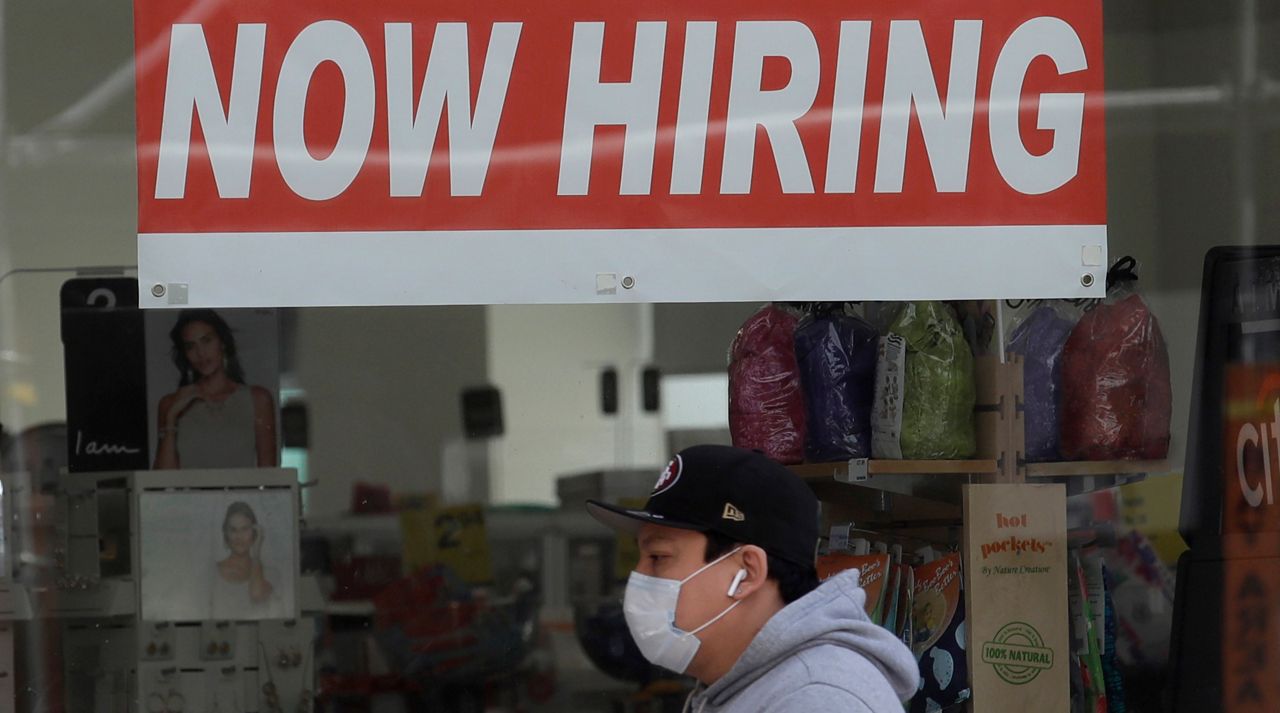WASHINGTON (AP) — U.S. unemployment dropped unexpectedly in May to 13.3 percent as reopened businesses began recalling millions of workers faster than economists had predicted, triggering a rally Friday on Wall Street.
What You Need To Know
- Employers shed 8.5 million more jobs last month
- Most economists foresee unemployment remaining above 10% to 2021
- Experts believe economy will remain sluggish amid pandemic
- Employment rate may take years to recover
The jobless rate is still on par with what the nation witnessed during the Great Depression. And for the second straight month, the Labor Department acknowledged making errors in counting the unemployed during the coronavirus outbreak, saying the real figure is even worse than the numbers indicate.
Still, after weeks of dire predictions by economists that unemployment in May could hit 20 percent or more, the news that the economy added a surprising 2.5 million jobs last month was seen as evidence that the collapse may have bottomed out in April at 14.7 percent and that a recovery is well underway as states loosen their lockdowns and let stores, restaurants, gyms and other businesses reopen.
“We are witnessing the easiest phase of growth as people come off temporary layoffs and come back to their employers,” said Harvard University economist Jason Furman, who led the White House Council of Economic Advisers during the Obama presidency. “And once employers are done recalling people, the much harder, longer work of recovery will have to proceed.”
Most economists had expected rehiring to kick in as shutdowns were increasingly lifted and people gradually resumed shopping and eating out.
“The surprising thing here is the timing and that it happened as quickly as it did,” said Adam Kamins, senior regional economist at Moody’s Analytics.
On Wall Street, the S&P 500 was up 2.6 percent around midday on the news.
President Donald Trump seized on the report as evidence that the economy is going to come back from the coronavirus crisis like a “rocket ship.”
“This shows that what we’ve been doing is right,” said the president, who has pushed governors aggressively to reopen their economies amid warnings from public health officials that the country is risking a second wave of infections on top of the one that has killed over 100,000 Americans.
Still, the job market is in such a deep hole that it could take years to dig out, economists say. Most are forecasting unemployment in the high single-digits or low double-digits by the end of this year.
Economists had expected the government to report that employers shed 8.5 million more jobs in May on top of the 21.4 million lost in March and April.
Instead, nearly all industries added jobs, a sharp reversal from April, when almost all cut them. Hotels and restaurants added 1.2 million jobs in May, after shedding 7.5 million. Retailers gained 368,000, after losing nearly 2.3 million in the previous month. Construction companies added 464,000 after cutting 995,000.
The crisis has also exposed wide disparities: While the unemployment rate for white Americans was 12.4 percent May, it was 17.6 percent for Hispanics and 16.8 percent for African-Americans.
Economists warn that until most Americans are confident they can shop, travel, eat out and fully return to their other spending habits without fear of contracting the virus, the economy is likely to remain sluggish.
Erica Groshen, a labor economist at Cornell University and a former commissioner of the Labor Department’s Bureau of Labor Statistics, said hiring could ramp up relatively quickly in the coming months and reduce unemployment to low double-digits by year’s end.
“Then my inclination is that it will be a long, slow slog,” she said.
Gwyneth Duesbery, 22, returned this week to her job as a restaurant hostess in Grand Rapids, Michigan, as Bowdie’s Chop House prepares to reopen with tables 6 feet apart and seating capacity reduced to about one-quarter.
“I am concerned that it will expose me to potential diseases, and expose others, no matter the precautions that we take,” she said. “It’s kind of uncharted waters.
Friday’s report made it clear the government continues to struggle with how it classifies millions of workers on temporary layoff. The Labor Department admitted that government household survey-takers mistakenly counted about 4.9 million temporarily laid-off people as employed.
The government doesn’t correct its survey results for fear of the appearance of political manipulation.
Had the mistake been corrected, the unemployment rate would have risen to 16.1 percent in May, while corrected April figure would have been more than 19 percent, rather than 14.7 percent. Taken together, the two corrected numbers show that the overall trend still holds: Unemployment is going down.
A few businesses are reporting signs of progress even in hard-hit industries. American Airlines, for example, said this week that it will fly 55 percent of its U.S. routes in July, up from just 20 percent in May.
And the Cheesecake Factory said one-quarter of its nearly 300 restaurants have reopened, though with limited capacity. Sales are at nearly 75 percent of the levels reached a year ago, the company said.



